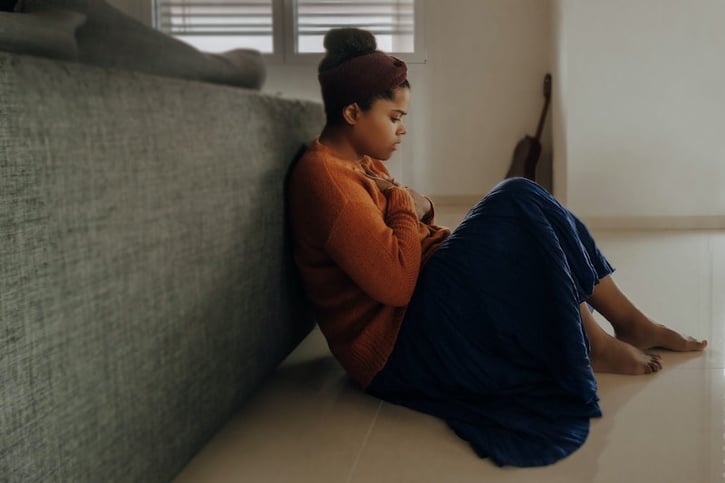A lot of people experience anxiety or depression at some point in their lives. These experiences are short-lived and mild for some of us, but sometimes anxiety or depression can be severe and long-lasting. Since there are so many different types of anxiety or depression and various manifestations of these disorders, it's common for people to have questions.
Below, we’ve answered some of the most common questions about anxiety and depression.
What are anxiety and depression?
Anxiety and depression are two different mental health disorders. Each presents itself differently with specific symptoms, though you can experience both at the same time.
Anxiety
Anxiety includes intense, persistent, or excessive fear and worries about everyday situations. Even though anxiety is a normal response to stressful situations, it can indicate an underlying condition if it interferes with your daily life.
Depression
On the other hand, depression is a group of mental health conditions associated with persistent feelings of sadness. This lowered mood is usually accompanied by a loss of interest in activities to the point where it impairs daily life.

What are the root causes of anxiety and depression?
Although anxiety and depression have different symptoms, the root causes of both mental health disorders come from a stress-filled life.
Numerous things can trigger anxiety, for example, medical conditions, past traumas, genetics, and environmental factors such as your job or interpersonal relationships.
Depression tends to be more complex and can also stem from many different sources. For example, abuse, age, gender, medications, grief, significant events, and genetics.

How to tell if you have symptoms of anxiety or depression, or both?
Since the symptoms of anxiety and depression are on opposite sides of the spectrum, you would not expect to experience both anxiety and depression. However, it is possible and quite common to be anxious and depressed, especially if you suffer from generalized anxiety disorder (GAD). A psychiatrist will be able to diagnose you with these mental health conditions, but here are some symptoms to look out for:
Symptoms of anxiety
- Feeling nervous, restless, or tense for no specific reason
- A sense of impending danger or crisis
- Increased heart rate
- Hyperventilating
- Sweating
- Difficulty concentrating
Symptoms of depression
- Feeling helpless or hopelessness
- Loss of interest in activities you used to enjoy
- Changes in your appetite and weight
- Sleep changes
- Feeling angry, irritable, or lethargic
- Participating in reckless or unsafe behaviors
How to improve depression and anxiety without medication?
Depression and anxiety can both be treated without medication (depending on the severity). Mental health practitioners have had great success using a combination of talk therapies such as cognitive-behavioral therapy (CBT) and holistic treatment plans. Customized treatment plans developed by SohoMD psychiatrists may include dietary suggestions, nutritional supplements, exercise recommendations, and mindfulness practices.
How to improve depression and anxiety with medication?
Moderate to severe anxiety and depression can significantly affect your life. You may have difficulty working and earning a living if you suffer from these mental health disorders. Telepsychiatry coupled with the proper medication can make a big difference in your personal and professional life for the better. It can sometimes take weeks or months to find the proper medication and dosage, so it’s important to remember to trust the process, monitor yourself closely, and work with your psychiatrist to find the best medication option.
Learn more about Telepsychiatry, an excellent place to start to get help with depression and anxiety.


